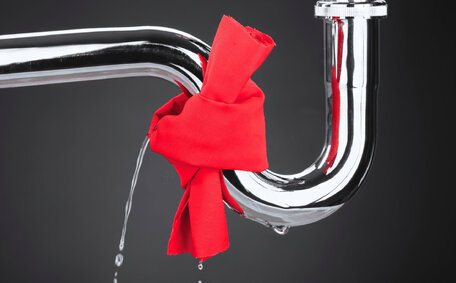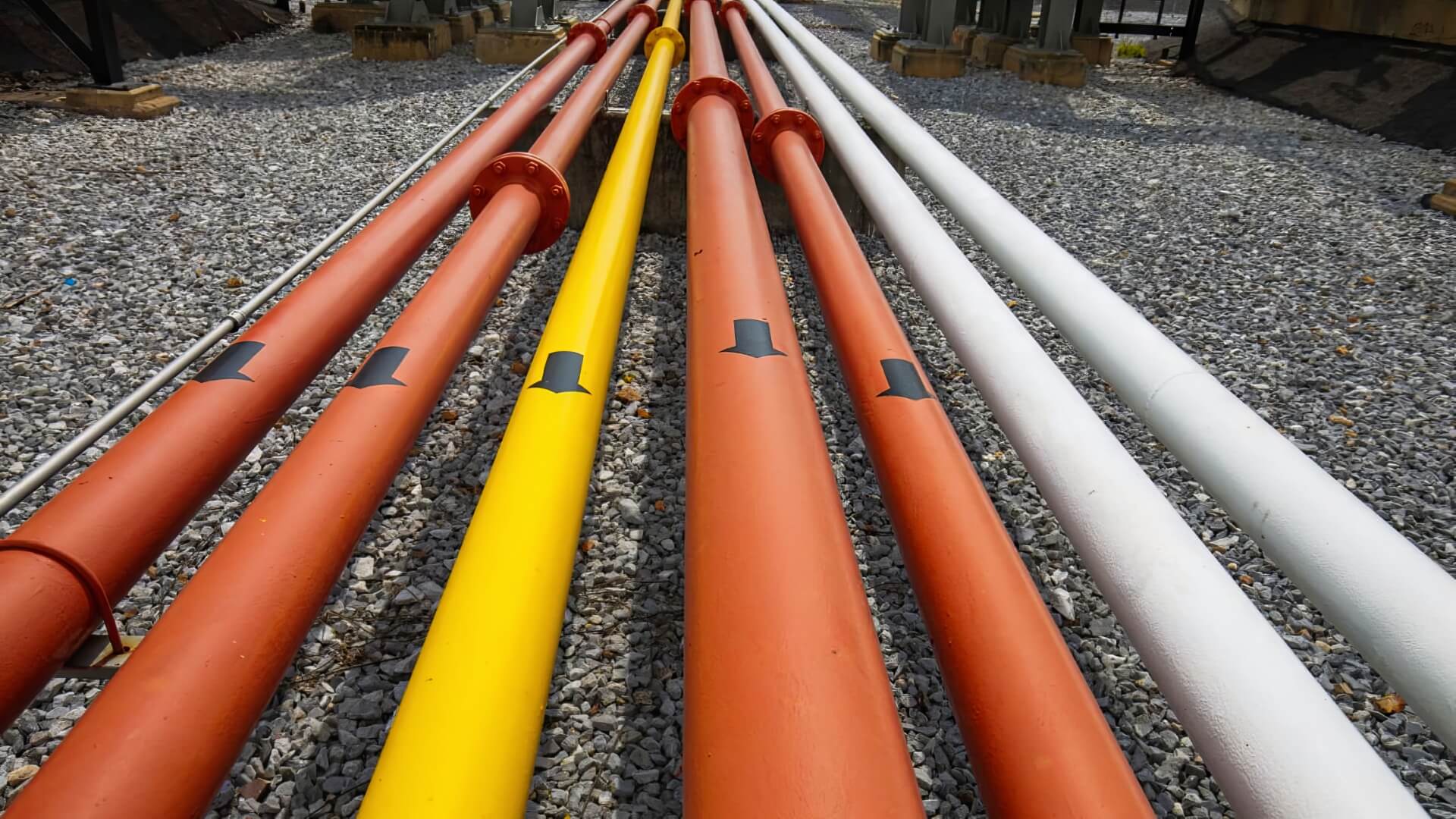Understanding Hot Water System Maintenance Fundamentals
Regular maintenance of your Wetherill Park water heater is crucial for ensuring efficiency, extending its lifespan, and preventing expensive repairs. Regular checks prevent sediment buildup, corrosion, and leaks, protecting against system failure.
Before inspecting your thermostat and heating elements, always turn off the power and water supply for safety.
Contact our Wetherill Park your plumbing technicians to understand what plumbing maintenance checks your customers’ systems require.
Inspecting for Leaks and Signs of Corrosion
Periodically check for leaks around your hot water heater; even minor drips can lead to significant water damage over time. Inspect water faucets for proper backflow prevention and check threaded joints and valves for moisture or signs of corrosion.
Look closely for rust spots or dampness on the water heater tank, as these can signal a slow leak.
Flushing the System to Remove Sediment Buildup
It’s recommended to flush the tank annually to remove mineral sediment that accumulates over time. Sediment settling at the tank’s base reduces hot water storage capacity and insulates the heating element, leading to decreased efficiency.
A suitable time to drain your water heater is after turning off the power and attaching a hose to the tank’s drain valve. Open the pressure relief valve at the top to allow air in and let water flow out your drain hose into a bucket until it runs clear.
Capture any dirty water in a bucket during maintenance to prevent it from entering household drains.
In areas with hard water such as Wetherill Park, it may be advisable to flush the system every 6 months. Removing sediment restores heating element contact with water in your hot water heater, improving energy efficiency and potentially lowering energy bills over time. It also extends the lifespan by reducing internal corrosion.
If unable to perform maintenance your water heater, engage a maintenance service with our Wetherill Park licensed plumbers to handle this vital task.
Assessing and Replacing the Anode Rod
The anode rod is a crucial component that protects the inner tank lining from corrosion. Made from an active metal, the rod attracts damaging electrons away from the tank to prevent premature failure.
In areas with hard water like Wetherill Park, the anode rod should be removed and inspected every 2-3 years. A corroded rod indicates the tank liner is deteriorating, which can necessitate a replacement to prevent inner damage.
To replace the anode rod, first shut off the gas and power supply, then proceed to drain the system. Unscrew the anode rod using a socket wrench - a corroded rod will need extra torque. Apply thread tape to the new rod, screw it in hand tight plus a quarter turn and restore water supply & power.
Neglecting deteriorated anode rods risks shortening the life your water heater from inner tank corrosion. Contact Wetherill Park’s licenced plumbers if you need assistance assessing or replacing this essential component.
Testing the Temperature and Pressure Relief Valve
The temperature and pressure relief valve (TP valve) is a critical safety feature that releases excess heat and pressure to prevent tank explosions. Regular testing will protect your water by ensuring the temperature pressure relief valve can activate properly when required.
Annually testing the valve by lifting its lever and allowing water to discharge ensures it functions correctly. A properly working valve should release a strong flow of water, irrespective of temperature. If only a small trickle or no water comes out, this indicates a blockage or faulty valve requiring repair.
The tpr valve should be tested and replaced every 6 months by running water out the drain pipe for 30 seconds. Doing this flushes any sediment from the valve while confirming it is working correctly by resetting itself after releasing. Contact our Wetherill Park licenced plumbers immediately if issues are detected during testing.
Checking Proper Operation and Settings
Regularly confirm that the thermostat and control valve are functioning to maintain efficient hot water delivery. Start by turning off power to the unit then open the electrical panel to inspect the components.
Ensure all electric water thermostat settings are between 49-60°C to maintain optimal performance. Settings below 49°C pose a Legionella risk, while temperatures above 60°C can waste energy and promote scale buildup. If necessary, adjust the dial to achieve the optimal temperature range.
Check that the heating elements are in good condition without any corrosion or mineral deposits which your water heater needs to function at peak efficiency. Test that they heat up when power is turned back on and the thermostat calls for heat.
Inspect electrical connections to confirm they are secure and wires are in good condition. Loose, corroded or damaged wiring can present safety risks. Tighten any loose wire nuts and ensure insulation is intact.
If you detect any operational issues, inform our Wetherill Park plumbers to ensure your hot water system’s reliable performance.
Identifying Common Maintenance Issues
There are several common maintenance issues to look out for with hot water systems:
Inconsistent Water Temperature
Inconsistent water temperatures may indicate issues with the thermostat or heating elements. Fluctuating temperature can indicate mineral deposits are interfering with components or wires are loose.
Unusual Noises
Banging or rumbling sounds may point to sediment in the pipes or loose heater connections. Take note of any new or unusual sounds coming from the unit.
Discoloured Water
Rusty or brownish water suggests corrosion inside the tank, which can negatively affect the hot water quality. Check the anode rod and drain the tank to flush sediment. If flushing doesn’t clear it up, interior corrosion may require replacement.
Low Water Pressure
Poor flow rate can result from clogged piping, malfunctioning water valves or issues with the expansion tank. This hinders efficient hot water delivery.
Slow Hot Water Recovery
A quick depletion of hot water with slow recovery could be due to restricted flow in the tank. Flush out mineral buildup and check heating elements.
Get your local Wetherill Park licensed plumber involved if any issues with your heater continue to arise, affecting the performance, safety or lifespan of your hot water system.
Preparing for Routine Maintenance Tasks
Performing maintenance your water heater on your hot water system periodically requires gathering the right tools to complete all necessary checks and procedures safely. Create a comprehensive heater maintenance checklist that should include your inspecting all components and connections for wear or faults.
Shut off electricity and water supply at the mains prior to any maintenance. Have ready bucket, hose, rag and replacement parts like piping, insulation, valves or heating elements in case issues are found requiring repair.
Ensure you have proper protective equipment like gloves, eye protection and coveralls. Print the checklist to follow methodically, taking notes on unit condition and marking when each task is complete. Streamline future upkeep by keeping signed checklists documenting work history.
Schedule seasonal maintenance sessions and stay organised by keeping spare parts on hand when repairs are needed. Contact our Wetherill Park licenced technicians if complex servicing or repairs are required beyond DIY maintenance capabilities.
Consequences of Neglected Water Heater Maintenance
Neglecting water heater maintenance can reduce the system’s lifespan and affect its durability.
Reduced Lifespan
Lack of maintenance accelerates internal corrosion and sediment accumulation which damages components, shortening the unit’s lifespan significantly. Regular maintenance can help your system extend its operation time by 5-10 years with yearly flushing and replacing eroded anode rods as needed.
Increased Energy Costs
Sediment can build up in the tank over time, and faulty heating elements left unchecked lower heating efficiency, costing more in energy bills the longer problems persist. Periodic flushes and component checks maintain peak performance.
System Failures
Undetected leaks, faulty electrical connections or failure of temperature and pressure relief valves from neglected maintenance heighten risk of catastrophic system failures leading to no hot water supply.
Expensive Repairs and Replacement
Catching small sign your issues early can prevent them from escalating into major repairs or full unit replacements prematurely. Reactive servicing usually exceeds $500 while new systems can cost over $2000 installed.
Protect your business and savings by scheduling periodic hot water system maintenance checks with our Wetherill Park plumbers.
When to Call a Professional
While some hot water system maintenance tasks are suitable for DIY, certain situations require contacting professional Wetherill Park plumbers for assistance:
Complex Repairs or Replacements
Engage a professional when complex repairs like replacing gas water heater elements or anode rods are needed, as inexperience can lead to further damage or injury.
Unsure About Proper Procedures
If you’re unsure about safely conducting tank flushes, T&P valve testing or electrical inspections, it’s safer to seek professional help to prevent hazardous errors.
Faulty Operation or Leaks
Seek professional assistance for urgent diagnosis and repairs if you encounter odd noises, cold water delivery, significant leaks, or suspect any system faults.
Contact us on 1300 349 338 or at jobs@wetherillparkplumbingservices.com.au for expert maintenance of your Wetherill Park hot water system.






